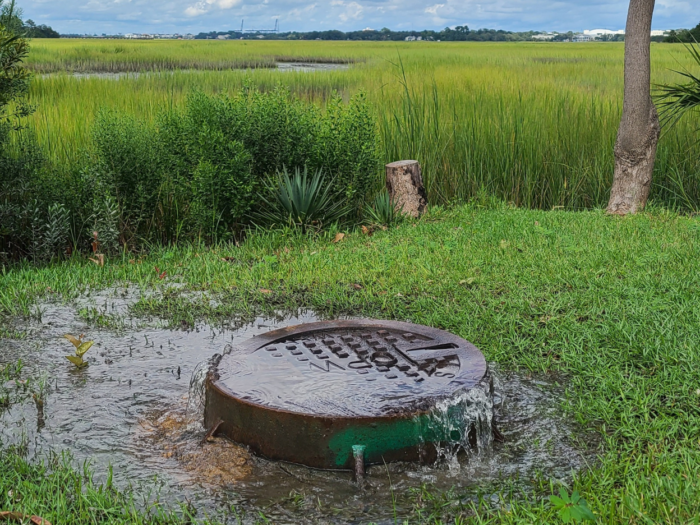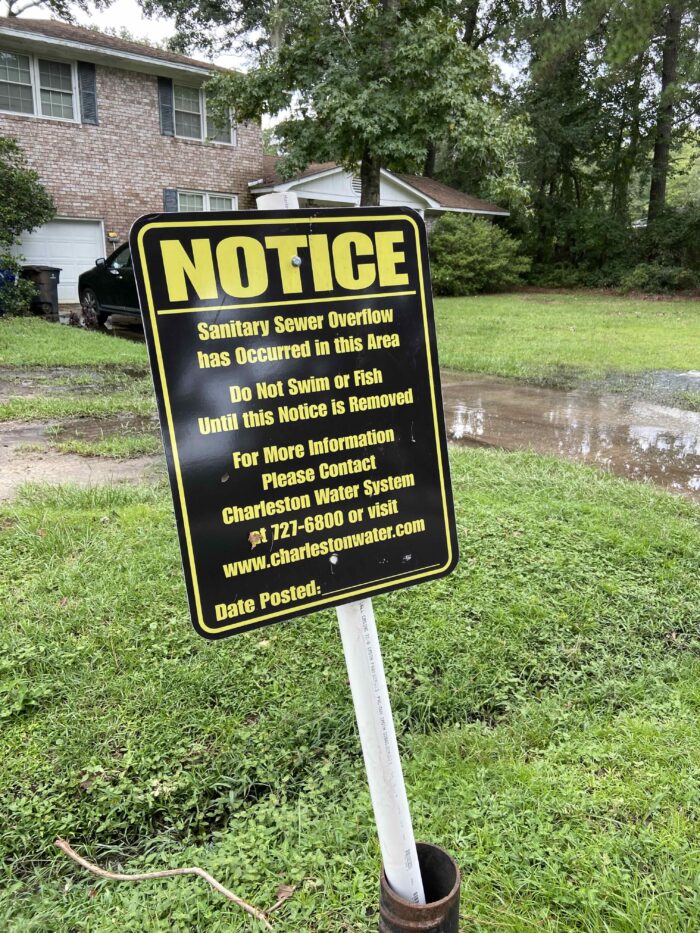Number one city haunted by sewer overflows
There’s nothing sanitary about the “sanitary sewer overflows” plaguing Charleston, the city awarded “Best City in the United States” by Travel + Leisure for 10 years in a row.
Residents and tourists alike risk exposure to the bacteria and pathogens from sewage in the rain and floodwaters as they explore Charleston’s historic attractions or prized waterways. Sometimes, all it takes is routine rainfall for sewage to flow into the city’s streets, rivers, and residences.
The Southern Environmental Law Center, on behalf of Charleston Waterkeeper, sent a letter today warning Charleston Water System that the groups plan to file a lawsuit unless the sewage overflows are addressed.

“Sewer overflows are serious health and safety concerns for our communities,” said Emily Wyche, SELC staff attorney. “Charleston Water is supposed to protect us from this pollution but has failed to do so for over a decade. It’s time for them to start doing their job.”
A sanitary sewer overflow, or “SSO,” occurs when untreated or partially treated sewage overflows from the wastewater system into nearby rivers, marshes, streets, and residences. In Charleston, SSOs often occur when excess water overwhelms sewer pipes due to “wet weather.” These spills threaten the environment and public health, especially the huge number of people who recreate and fish in Charleston waters.
Since 2015, the city’s public utility, Charleston Water System, has had at least 176 illegal sewer overflows, many of which spilled raw sewage into Charleston’s waterways, including the Ashley and Cooper Rivers and James Island Creek. More than half of the overflows were caused by storm events, and about half of those storm events were just routine rain.
In December 2023, rain overwhelmed Charleston Water’s Plum Island sewage treatment plant and caused three separate SSOs – combined, they spilled around 40,000 gallons of raw sewage into roads and waters.
“We’ve moved on from outhouses and dumping waste, yet it’s 2024 and sewage is still ending up in our streets and waterways,” said Andrew Wunderley, Charleston Waterkeeper. “It’s past time to fix this problem.”

In 2020, the Post and Courier reported on the frequent sewer spills on Donahue Drive in West Ashley, one of Charleston Water System’s service districts. Residents there said the sewer overflows have been happening for 10 to 20 years. A spokesperson for Charleston Water System claimed they were “working feverishly” to seal leaks in the system that can cause overflows, referring to chronic spilling on Donahue as “one of (its) top priorities.”
“Charleston Water has known for years that rain and floodwaters overload sewage pipes but has failed to fix the problem and protect residents and local waterways,” said Andrew Wunderley, Charleston Waterkeeper. “It is a significant problem that needs to be fixed now, or it will only get worse as our population grows, sea levels rise, and floods increase.”
Under the federal Clean Water Act, Charleston Water System has 60 days to remedy the illegal sewer overflows. If the utility refuses, SELC and Charleston Waterkeeper can move forward with a lawsuit in federal court.
